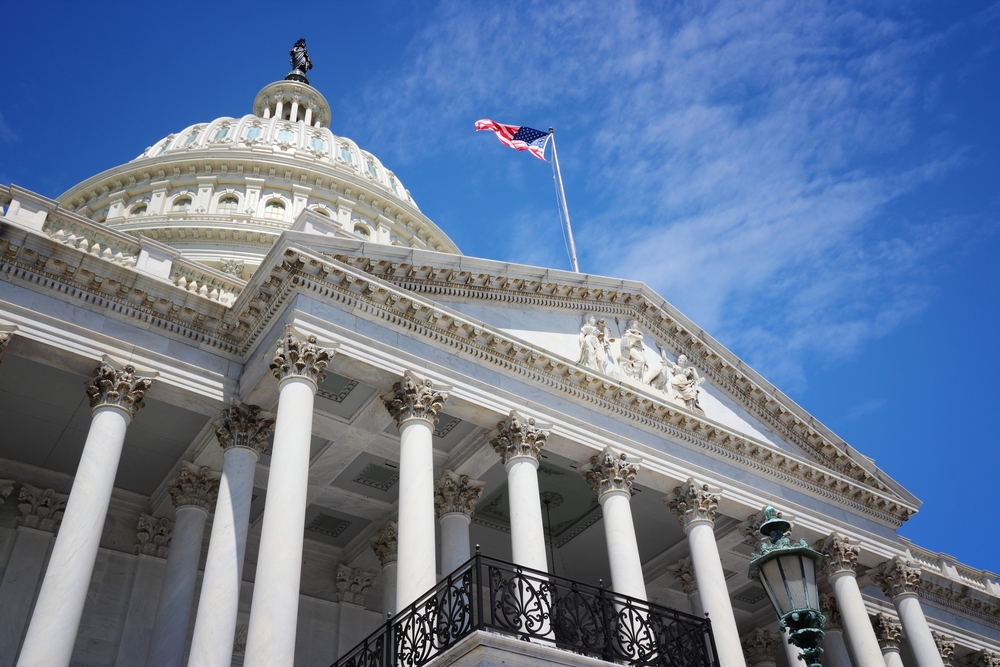Senate Race Runoffs in the Peach State

By Michelle Rutter Friberg, NCIA’s Deputy Director of Government Relations
As you’ve probably heard by now, which party controls the Senate won’t be known until January 5 — but those results could quite literally determine if marijuana will become federally legal over the next few years.
In Georgia, no candidate can advance through a primary or a general election system without first earning more than 50% of the votes. If no one does, the top two vote getters advance to a runoff election, ensuring that one will earn the majority of votes cast.
This year, the state’s two Senate races — one regular, the other a special election to fill the remainder of a retired senator’s seat — have gone to a runoff. The first will be between incumbent Sen. David Perdue (R) and Democrat Jon Ossoff; the latter will be between Republican Sen. Kelly Loeffler and Democrat Rev. Raphael Warnock. If Democrats win both seats, the Senate will be tied 50-50, and Vice President-elect Kamala Harris would be the tie breaking vote.
It can’t be overstated that the Democrats have an uphill (but not impossible!) battle ahead. In November, Sen. Perdue garnered 86,000 more votes than Ossoff, while Warnock benefited from the fact that two Republicans — both Sen. Loeffler and Rep. Doug Collins — were on the ballot in his race, splitting the party’s votes.
And of course, it’s 2020, so I would be remiss not to mention the pandemic! The runoff is taking place in an off-election year in (what will likely still be) the middle of a serious surge of COVID-19 cases. On top of that, Republicans historically have a stronger track record of turning out in runoffs in the state.
Despite all of that, Democrats are working hard to turn out the vote and organize early. In addition to relying heavily on both first-time voters and Black voters, Democrats are also hopeful that young voters will be the key to winning the runoff in January. Ossoff recently said:
“There are 23,000 young people here in Georgia who will become eligible to vote just between the November election and this January 5 runoff, and a decade of organizing, much of this work led by Stacey Abrams, has put the wind in our sails here in Georgia. What we’re feeling for the first time in four years is hope.”
As I said before, which party controls the Senate could quite literally be the difference between whether or not cannabis could become federally legal in the next one to two years. Senate Minority Leader Chuck Schumer (D-NY) was interviewed in October and said:
“I’m a big fighter for racial justice, and the marijuana laws have been one of the biggest examples of racial injustice, and so to change them makes sense. And that fits in with all of the movement now to bring equality in the policing, in economics, and in everything else. Our bill is, in a certain sense, at the nexus of racial justice, individual freedom and states’ rights.”
Schumer was referencing the bill he introduced, the Marijuana Freedom and Opportunity Act, which would remove cannabis from the Controlled Substances Act, allowing states to set their own policies. It also includes provisions to help funding to cannabis businesses owned by women and people of color through the Small Business Administration; funding studies on traffic safety, impairment detection technology, and health effects of cannabis; restricting advertising that could appeal to children; and setting aside $100 million over five years to help states develop streamlined procedures for expunging or sealing prior cannabis convictions.
Time is of the essence. Voters must be registered by December 7 in order to participate in the runoff election. If you’re in Georgia, or know anyone who is a resident, please check out the Cannabis Voter Project to learn more and make sure you’re ready to vote. If you can, consider making a donation to the Ossoff campaign or the Warnock campaign. The future of cannabis legalization in this country depends on it!

Follow NCIA
Newsletter
Facebook
Twitter
LinkedIn
Instagram
News & Resource Topics
–
This Just In
Member Blog: The EHS Risks Cannabis Processors Don’t See—Until Something Goes Wrong
Plan Your Visit to DC and Be In The Room Where It Happens